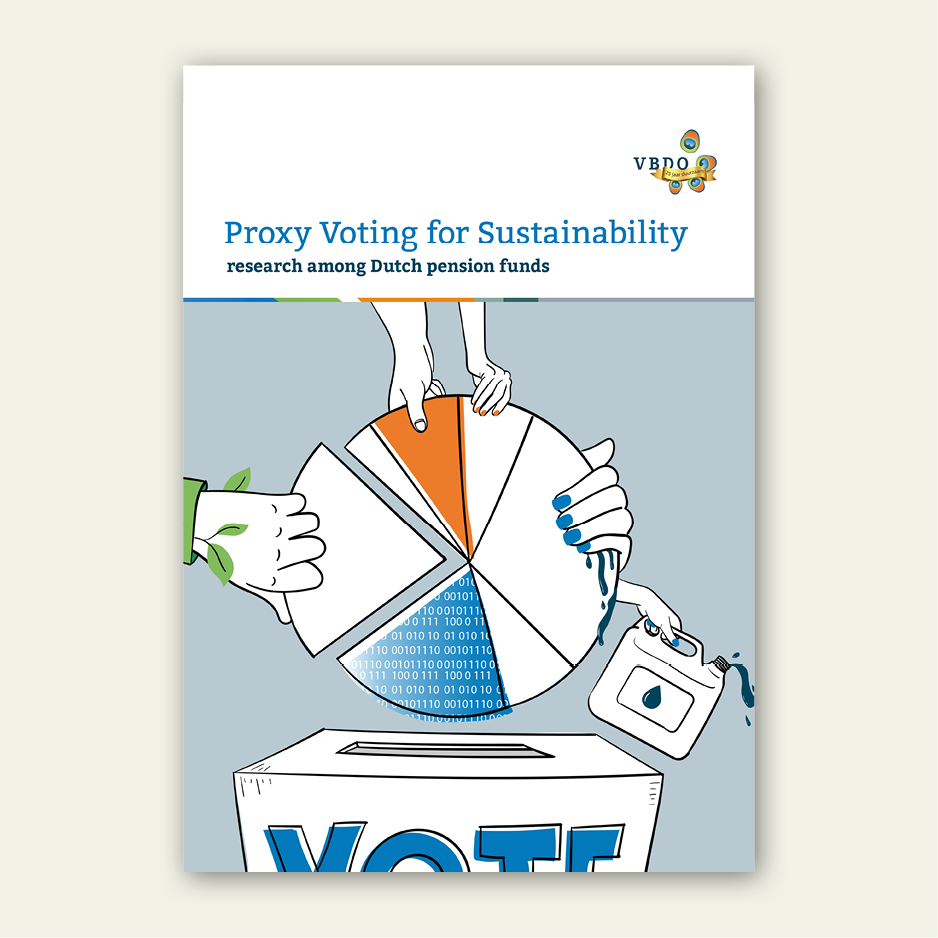Pension funds see voting for sustainability as an important instrument for actively leveraging corporate ownership. However, a large part of the funds mainly use their voting rights when they reach a bottleneck in their dialogue on specific topics with these parties and not to set a sustainable standard. This is evident from a survey carried out for the first time by the Association of Investors for Sustainable Development (VBDO) among 34 Dutch pension funds about their voting behavior.
More attention for exercising voting rights
Voting and divestment are among the most important resources pension funds have for exercising their shareholder rights. Voting has received a lot of attention in recent years, partly due to various climate resolutions that have been submitted to the world’s largest oil and gas companies, including those from the grass roots movement Follow This.
Whether or not criteria for people & environment are included in voting policy, a difference in perception?
Almost all pension funds (94%) indicated that E&S requirements are included in their voting policy. However, this year’s VBDO benchmark for responsible investment among pension funds showed that less than half (47%) of the funds integrated human and environmental requirements into their policy.
Mart van Kuijk, project manager of the study, explains why this difference could possibly be explained: “It could initially indicate that the minimum criteria of the VBDO for people and the environment are higher than those of the pension funds, or those of their asset managers. As far as we are concerned, the funds would therefore be wise to look more critically at the assessment of their own integration of these criteria in voting decisions.”
Cast the correct vote
The results also show that 63% of the surveyed pension funds mainly use votes as an escalation tool for failing engagement efforts on environmental and social topics. This also means that more than a third do not use or link the two main resources an investor has for exercising active ownership: dialogue (engagement) and voting.
A sound voting policy consists of annual feedback between the pension fund and the administrator, for example by means of reports and audits. This does not seem to be organized for all funds. Although almost all funds report on their voting behavior in aggregated form (93%), or even for each individual decision (63%), less than half (44%) of the funds check whether votes are actually cast in accordance with their own guidelines.
The importance of consultation rounds
Van Kuijk: “It is precisely the combination of engagement, voting and in the extreme case exclusion that is an effective driver for change in companies. It is particularly important to maintain active contact with asset managers and voting advisors during external consultation rounds. The annual review of the voting policy of these organizations is essential if one wants to put important ESG risks on the agenda.
We consider it self-evident that all pension funds, but of course also other institutional investors, make an active contribution to creating long-term value and help make the real economy more sustainable. This can be done by, among other things, conducting the aforementioned conversations. In it, they ideally express any concerns about current policy, include the beliefs of their participants and customers, and reveal differences in policy and voting behavior”.

